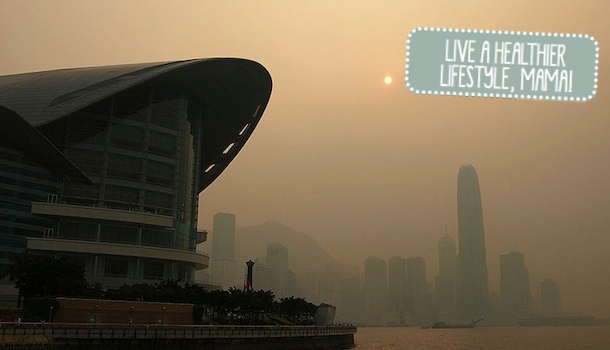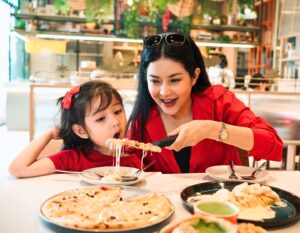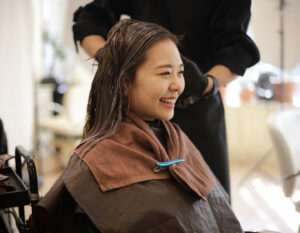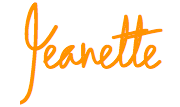
 Post Category - HomeHome - Post Category - Living Tips & TricksLiving Tips & Tricks
Post Category - HomeHome - Post Category - Living Tips & TricksLiving Tips & TricksSince the beginning of 2013, the daily Air Pollution Index in Hong Kong has not fallen below the ‘very high’ range of 101-200, with some days actually spiking above a ‘very severe’ 200+. While moving to more pristine climes may not be a practical solution, there are some simple changes within the home that can be made to decrease the toxic burden on the family.
Step 1: Clean out your home!
Clean up your cleaning products: Eco-friendly products or good old-fashioned cleaning remedies are just as effective as the popular chemical options. Here’s just one suggestion that will get your drains sparkling without toxic chemicals.
Ditch the antibacterial washes: Triclosan, found in antibacterial hand washes, is linked to creating antibiotic resistant bacteria. Regular soap should suffice!
Swap chemical air fresheners for natural ones: Store-bought air fresheners consist of multiple chemical nasties which release pollutants into the room. Enjoy the natural fragrance of pure essential oils instead!
Switch to natural fabrics: Synthetic materials can contain flame retardant chemicals that leach into the skin, so use flame retardant-free natural fabrics where possible.
Reduce your use of plastic: Not only is the manufacture and disposal of plastics hugely toxic to the environment, but the use of certain plastics in the home can wreak havoc with our hormones. Use waxed paper for wrapping, store food in glass containers, don’t microwave food in plastic, buy BPA-free water bottles for drinking and don’t reuse plastic water bottles.
Clean up your home environment: Air purifiers, dehumidifiers and micro-filtration vacuum cleaners can filter air pollution particulates, dust and mould from your home. Use eco-friendly, toxin-free paints to paint children’s bedrooms.
Step 2: Clean out your refrigerator!
Ditch (some) dairy: Hormones that are used to stimulate milk production in dairy cows pass into the milk, yogurt and cheese we consume. Switch to organic, milk and dairy products which are naturally hormone-free.
Embrace funny-shaped fruit (and veg!): The pesticides and fungicides used to ward off insects and fungi can be potent endocrine disruptors, also blocking nutrient absorption. Switch to organic, GMO-free produce where possible.
Swap the ‘dirty dozen’: The 12 most polluted fruit and vegetables are apples, celery, cherry tomatoes, cucumbers, grapes, peppers, peaches, nectarines, potatoes, spinach, strawberries, and courgettes. Go organic for this dozen!
Eat the ‘clean 15’: Asparagus, avocados, cabbage, cantaloupe, corn, aubergine, grapefruit, kiwi, mango, mushrooms, onions, papaya, pineapple, sugar snap peas, and sweet potatoes are grown with the least amount of pesticides.
Give your fruit and veg a bath: Remove water-resistant pesticide and fungicide residues by washing all fruit and vegetables just like you wash your hands – with detergent. A very small amount of specialised ‘veggie wash’ or good old dish detergent will remove pesticide residues. Alternatively, peel.
Step 3: Clean out your body!
The liver is the body’s greatest recycling, regenerating and detoxifying organ, but the body’s ability to detoxify and eliminate depends on the right mix of nutrients and antioxidants, adequate dietary fibre and healthy gut flora.
Incorporate these top detoxifiers into the diet:
- Blue-green algae, barley, wheatgrass, organic dark leafy greens, and spirulina rid the body of harmful environmental toxins.
- Cabbage, broccoli, cauliflower, and brussel spouts strongly assist detoxification of endocrine-disrupting toxins.
- Dark red, blue and purple goji and acai berries, and green tea are powerful antioxidants that help improve liver function.
- Onions and garlic are a great source of a key detoxifying liver enzyme.
- Apples, wholegrain wheat, oats, corn, lentils, peas and figs are high in fibre, which binds toxins and removes them from the body as waste.
- Milk thistle, dandelion root, artichoke, coriander and turmeric improve the detoxifying capability of the liver.
- Live yogurt and probiotics contain ‘friendly bacteria’ which help neutralise ‘bad’ bacteria and destructive yeast by maintaining good flora in the gut.
Following these steps will help you to maintain a healthier balance, and give the whole family the good foundations they need to stay fighting fit in Hong Kong.
Jeanette Blanks is a UK and Australian trained and registered herbalist and naturopath. Since 2005, she has practiced in London, Singapore, and most recently set up the Stanley Wellness Centre in Stanley Market. She works with a wide range of medical conditions in people of all ages from infant to elderly, employing a variety of therapeutics within a naturopathic framework. These include herbal and nutritional medicine, Bach Flower Remedies, dietary therapy and lifestyle counselling to address the root cause of a disorder and bring the body back into balance.
 View All
View All











 View All
View All





 View All
View All


 View All
View All














